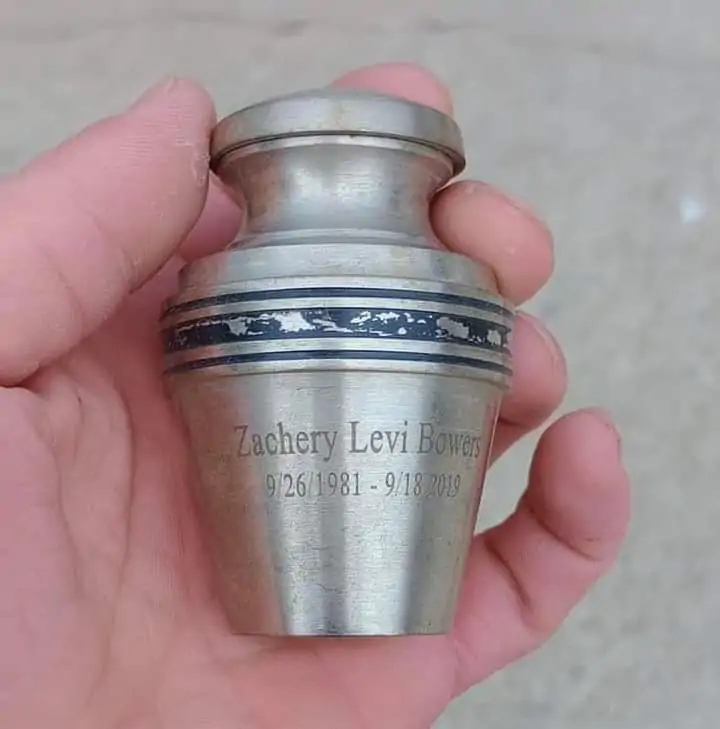Recently, social media has been abuzz with the discovery of a tiny urn bearing the name “Zachary Levi Bowers,” reportedly found in a parking lot. A viral post began circulating, stating:
“PLEASE HELP ME FIND THE OWNER — We found this tiny urn with the name Zachary Levi Bowers with ashes in the parking lot. I think it fell out of someone’s bag or car. Please flood your feeds and pray she finds her way back to her family. It only takes seconds to share.”
This post has prompted many to share the plea across various platforms, urging others to help reunite the urn with its rightful owners. However, questions about the authenticity of the post have also emerged, leading to confusion and concern among those who have seen the message.
A Growing Skepticism
A Facebook user responded with a strong warning against the post, stating:
“
So far I have counted 47 different places this urn has fallen out in the parking lot. I’m sure seeing this all over Facebook doesn’t do anything to help his family feel better about this loss of their loved one.”
This response suggests that the urn story could be a scam or misinformation, designed to gain attention and shares on social media. The claim that the urn has supposedly been found in multiple locations raises significant doubt about the authenticity of the story.
The Real Zachary Levi Bowers
Zachary Levi Bowers was indeed a real person. Born on September 26, 1981, he tragically passed away on September 18, 2019, just days shy of his 38th birthday. According to public records, his services were handled by Midwest Cremation & Funeral Services, LLC in Springfield, Missouri. This fact adds a layer of sensitivity and concern for those who knew him, as seeing his name involved in what might be a social media scam could be distressing.
What We Know and What to Do
At this point, it remains unclear if the post about the urn is genuine or if it is part of a series of misleading posts that have been circulating. If you come across this message or similar posts online, it’s crucial to exercise caution before sharing. Verify the authenticity of such claims and consider the emotional impact on those who may be directly affected.
For now, the best course of action is to refrain from spreading potentially false information. Instead, those who truly want to help should report suspicious posts to social media platforms and encourage others to be mindful of the potential impact of their actions online.
The story of Zachary Levi Bowers serves as a reminder of the importance of verifying information before sharing it widely. In an era where misinformation can spread rapidly, taking a moment to fact-check can prevent unnecessary distress and confusion.
